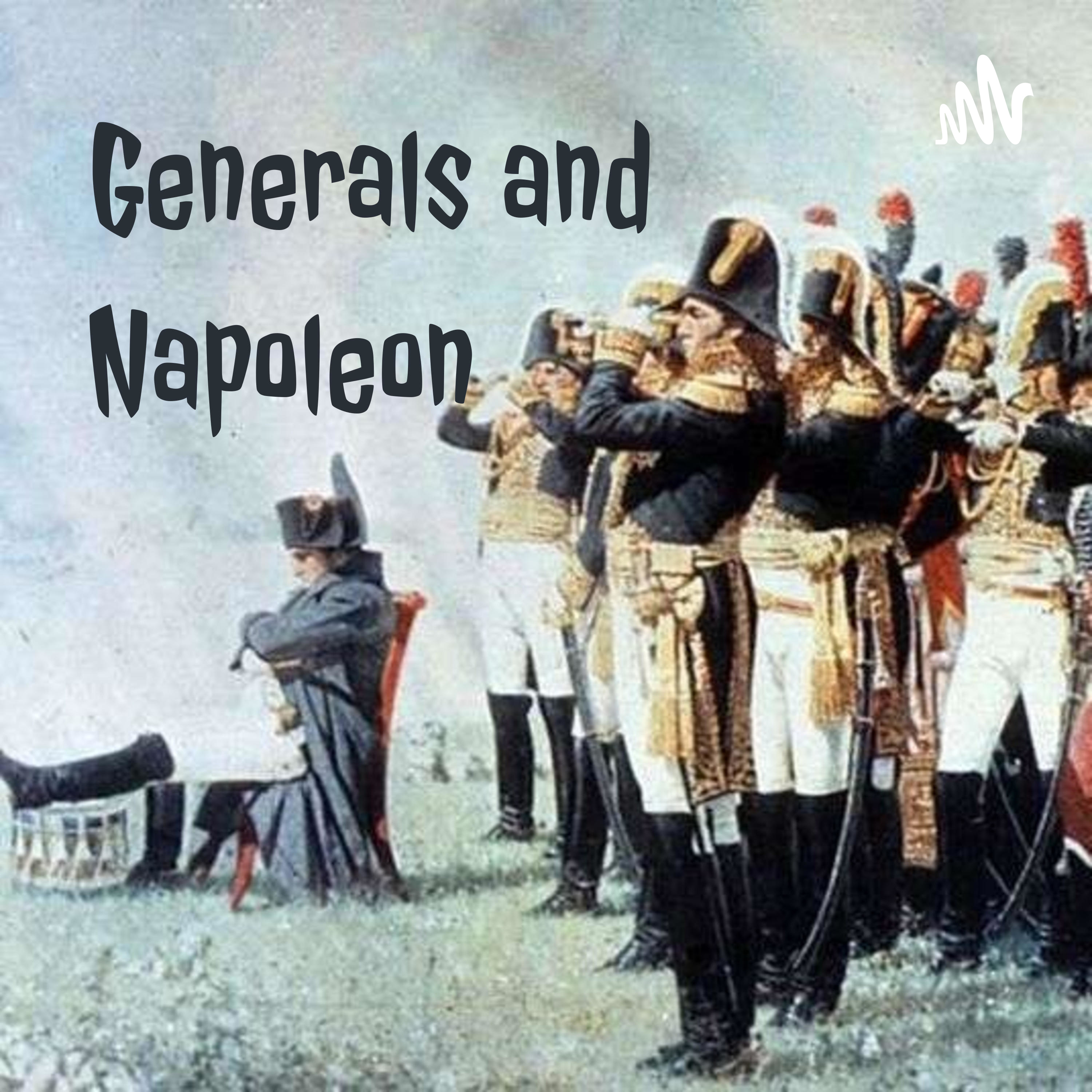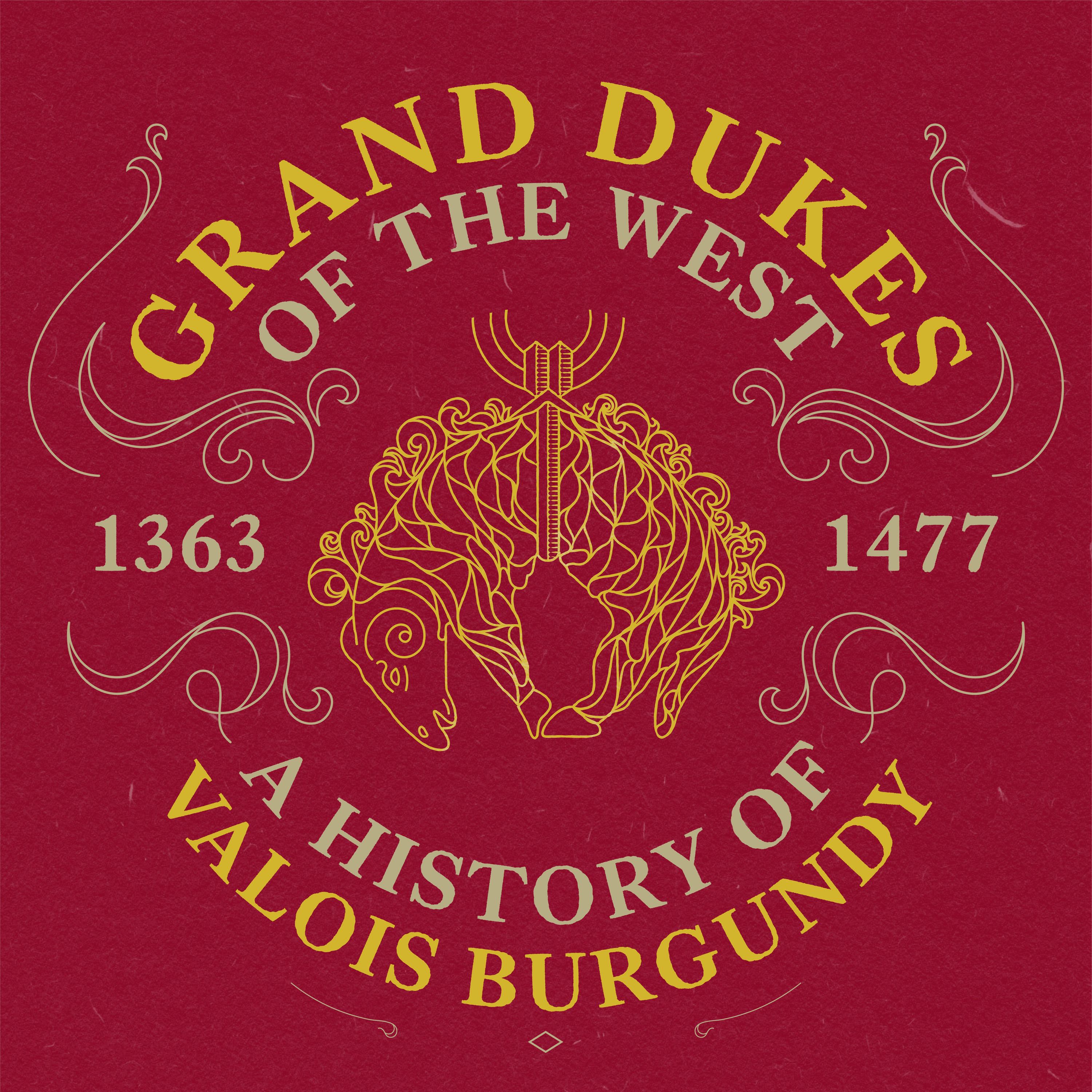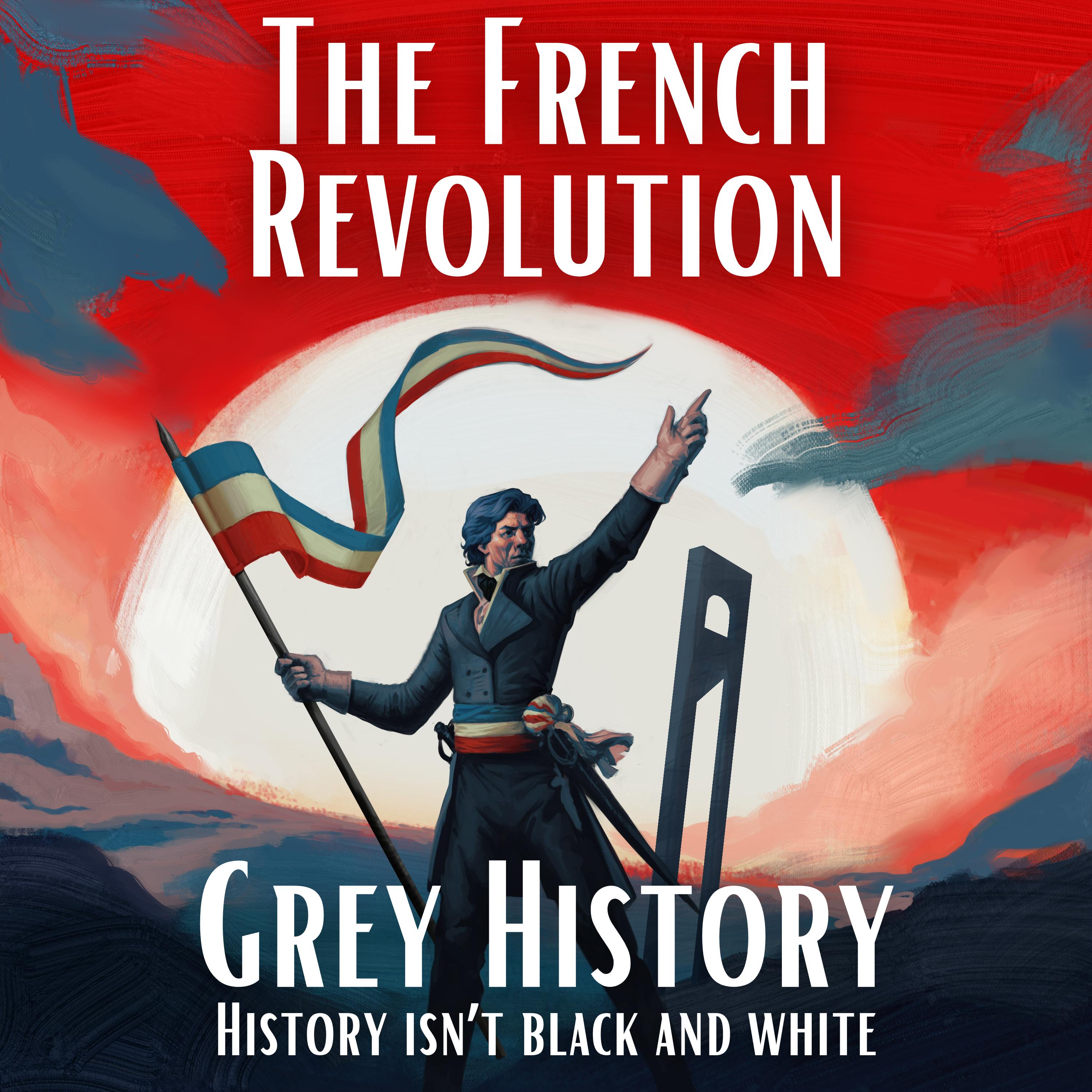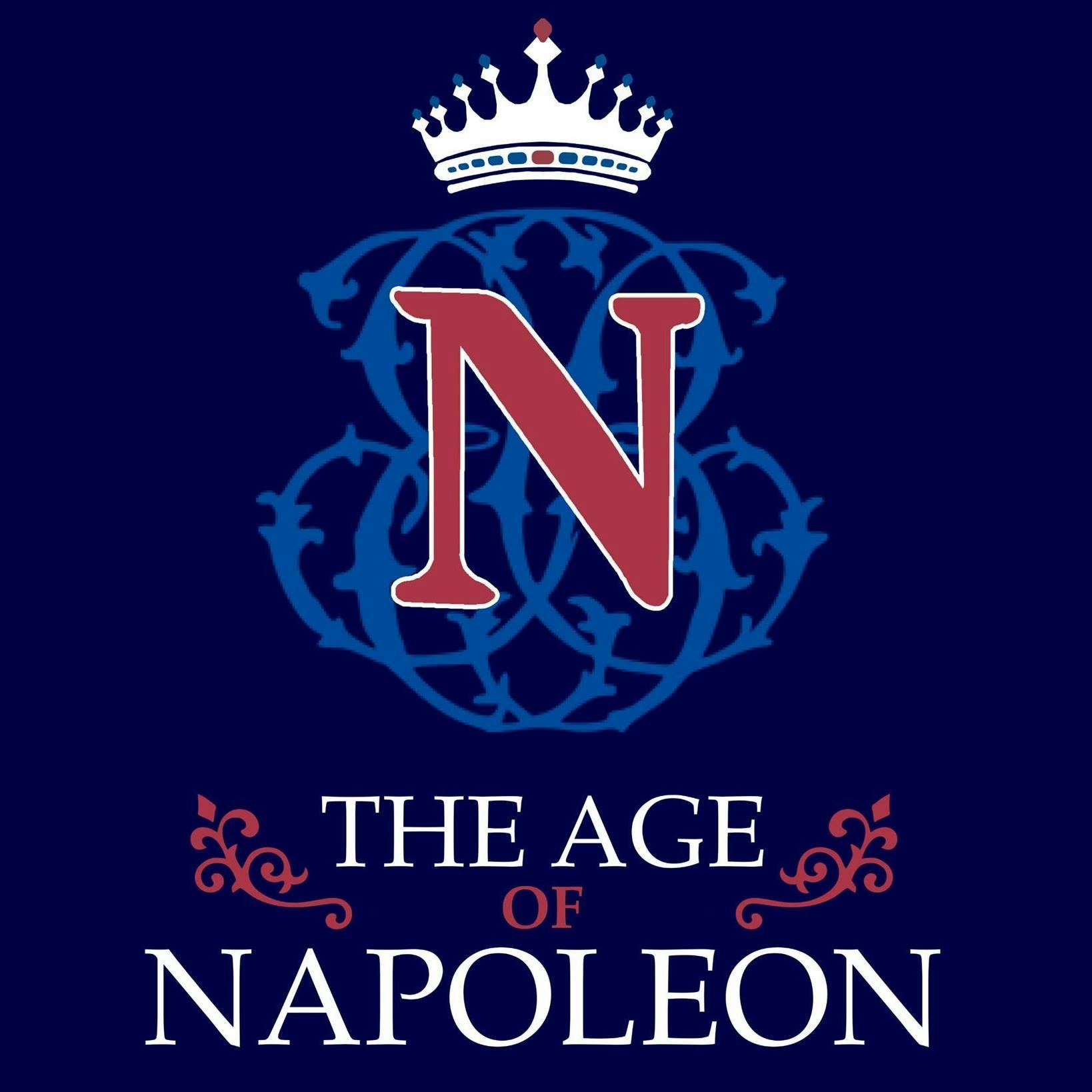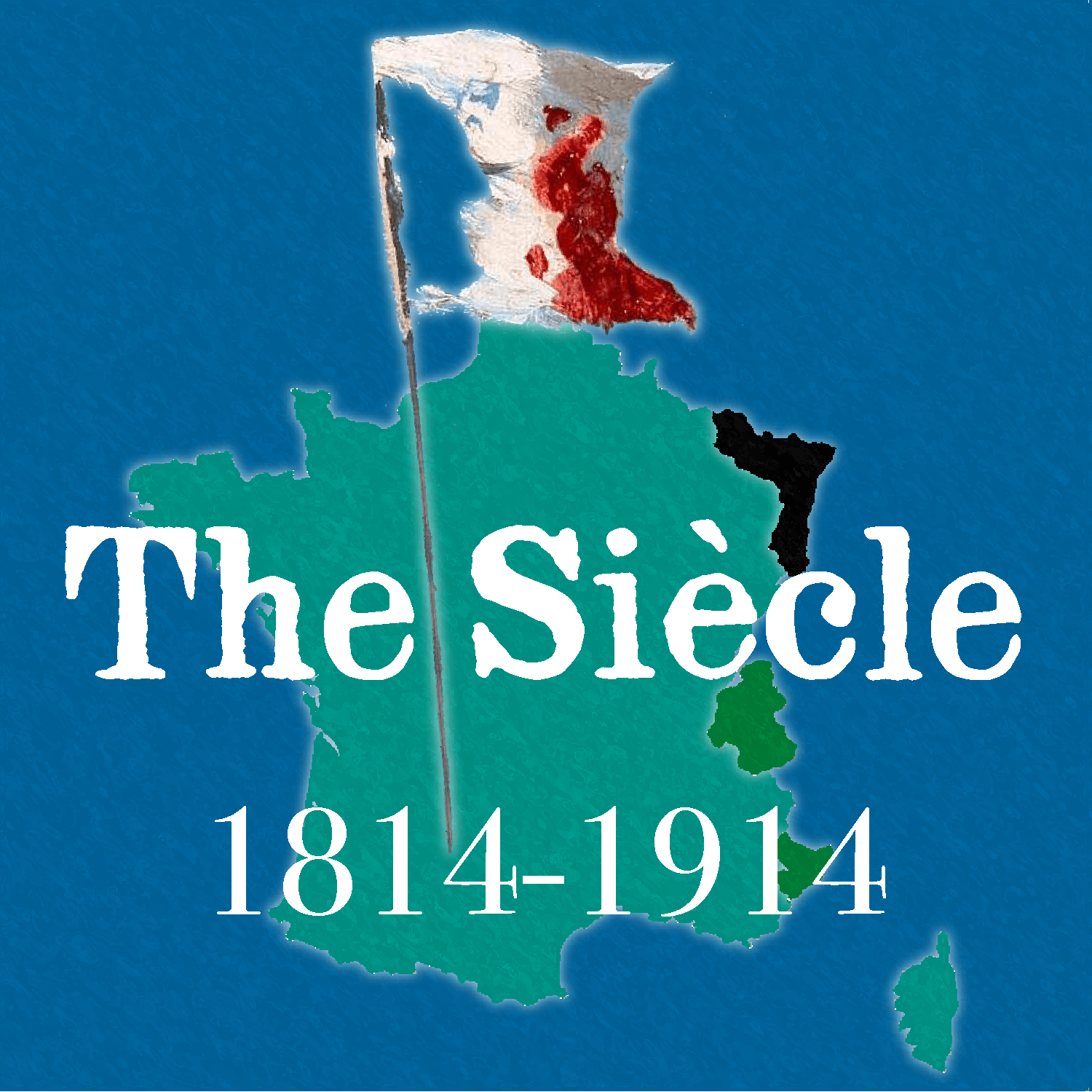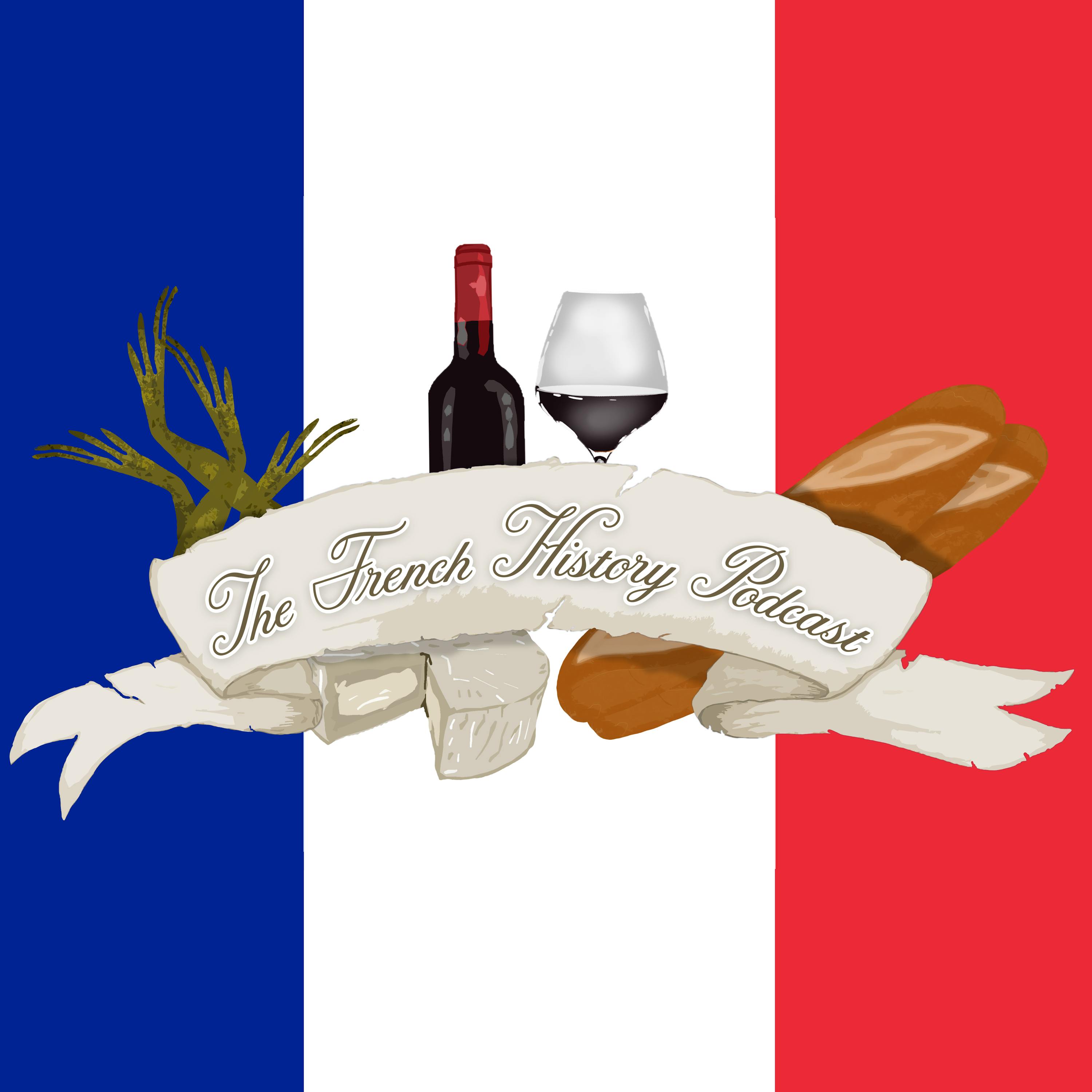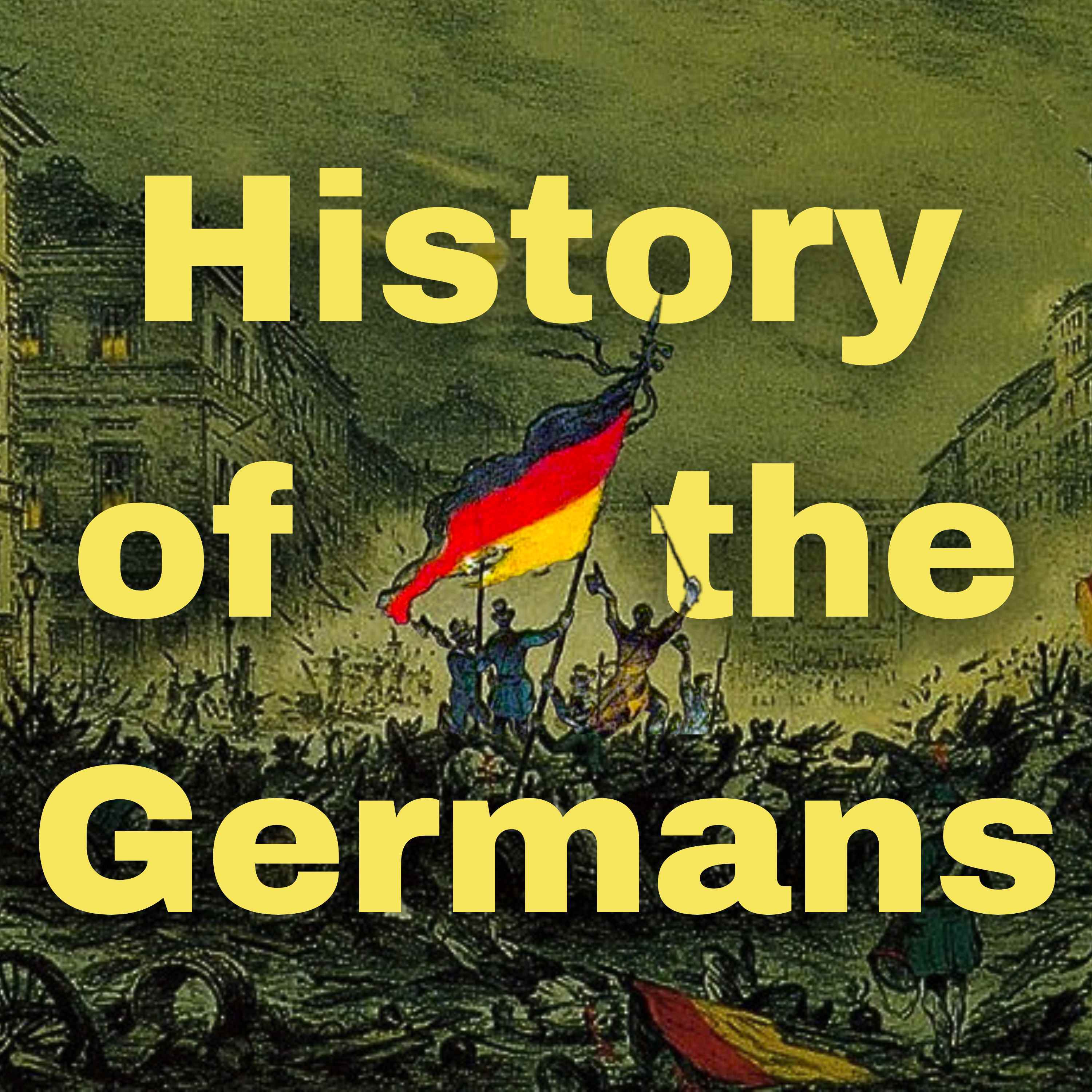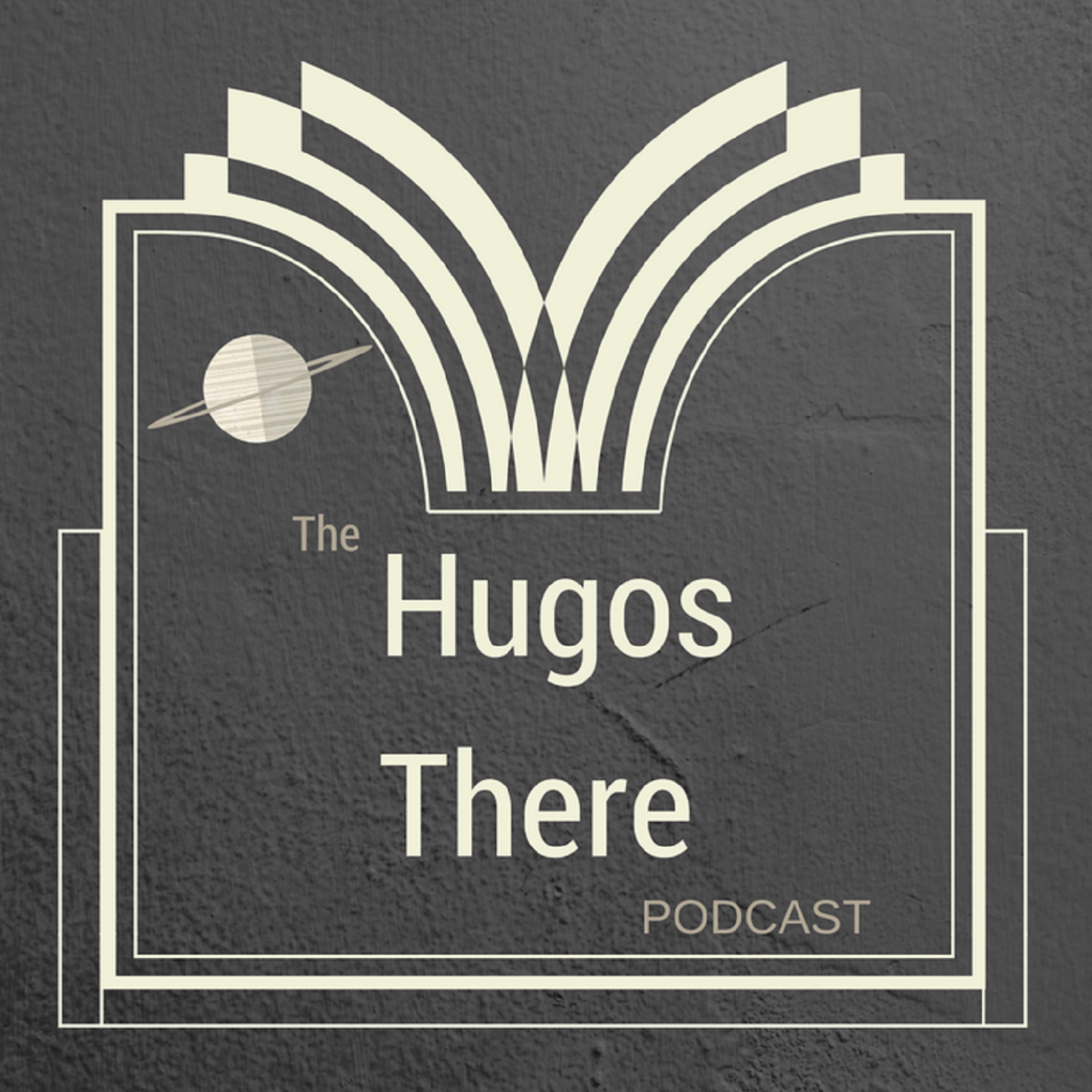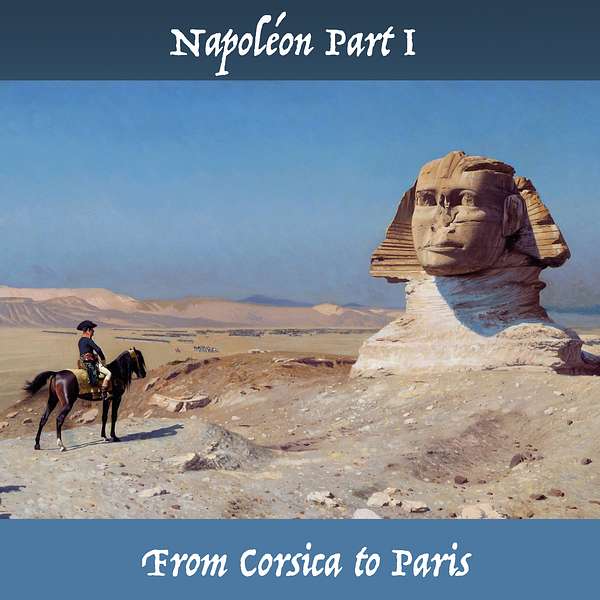
La Fayette, We Are Here!
La Fayette, We Are Here!
Napoléon Part I - From Corsica to Paris
Napoléon Bonaparte doesn't really need an introduction. He's the most famous Frenchman ever. He's had more books written about him than any other person, except for Jesus Christ. This French general and emperor shook France, Europe and the world at the turn of the nineteenth century.
He is also a polarizing figure. Enlightened ruler, or tyrannic dictator? In this episode, we will explore the fantastic story that led him from humble origins in Corsica to being the focus of all of Europe's monarchs and armies.
Note: I strongly encourage you to listen to my previous episode on the French Revolution. You might miss a bit in the years of 1789 to 1799 if you are not aware of some facts that I talked about then.
Timecodes:
Introduction
06:10 - Humble beginnings
14:36 - From promising officer to superstar General
20:12 - Joséphine and the Italian Campaign
29:48 - The Egyptian Legend
42:36 - Napoléon takes over France
53:51 - Conclusion
Music: Marche pour la cérémonie des Turcs, composed by Jean-Baptiste Lully, arranged and performed by Jérôme Arfouche.
Art: Bonaparte devant le Sphinx by Jean-Léon Gérôme, 1867-1868
Reach out, support the show and give me feedback!
You know his name. Even if you never showed any interest in France's history, you know his name. When talking about historical figures, kings, queens or even emperors, we have to give them their full name, or at least a number, to identify them. Not him, we are on a first name basis with him. The whole world knows who he is, just by his first name.
He’s an outsider in his own country. A bullied kid in school. He’s not rich, not born high ranking, and, at first, there doesn’t seem to be anything special about him. Yet, by his thirtieth birthday, the whole of Europe will know him.
I am talking about the most famous Frenchman of all time. A man loved, worshipped even by some, but also loathed and feared by others. A man who's had more books written about him than any other person, except for Jesus Christ. I am talking about NAPOLÉON.
Welcome to "La Fayette, We are Here!", the French history podcast for the American public. I am your host, Emmanuel Dubois, and today we are talking about Napoléon Bonaparte, the French general and emperor who shook France, Europe and the world at the turn of the nineteenth century.
The Duke of Wellington, one of the winners of the battle of Waterloo, Napoléon’s ultimate defeat of 1815, said that his sole presence on the battlefield was worth 40,000 men. This comment came from one of the best English generals of the time, so it’s not to be taken lightly. Then again, he could have said that to make himself look better when defeating French armies in the field... who really knows?
But how can a man, only one man, wield such power? How can he be so important? What did he possess that allowed him to step up and take over a country in the middle of the worst civil war it ever faced, to confront the foreign powers that were invading it and to take the fight to them? Out of 81 battles that he fought, he only lost ten. A good part of them seemed like losing battles at first, but he transformed them into astounding victories. His qualities as a military commander and as a statesman and reformer form his legend. There is so much to tell about this that we will do it in two episodes instead of one! Lucky you, dear listeners.
That being said, Napoléon is a deeply polarizing figure. Enlightened ruler, or tyrannic dictator? If you do some research, you will find people who worship the man, literally, and others who think he was the anti-christ, also literally. As usual, the truth lies somewhere in the middle. Napoléon had great qualities, and accomplished remarkable achievements, some lasting to this day. But he was also flawed and committed atrocities, notably during the campaigns of Spain and Portugal and in Russia. When talking about Napoléon, one has to acknowledge everything, the good, and the bad. Then it'll be up to you, dear listeners, to make up your mind on this man. He definitely was an extraordinary person and a great disturber, that I think is undeniable, but he was far from perfect. In the end, Europe feared him, they dreaded him even. That's why they exiled him on a rock in the middle of the Atlantic in 1815, as we'll see. We will explore the fantastic story that led him from humble origins to being the focus of all of Europe's monarchs and armies.
Quick note, I strongly encourage you to listen to my previous episode on the French Revolution. I will not redo its history here, only the bits that are relevant to Napoléon's journey, so you might miss a bit in the years of 1789 to 1799 if you are not aware of some facts. It's a great listen, trust me! Ahem, moving on...
Humble beginnings
Let us start at the very beginning, his childhood on the Île de Beauté, Corsica. He is born there on August 15, 1769, just one year since the Mediterranean island was acquired by France, from the Republic of Genoa. His parents are Carlo-Maria de Buonaparte and Laetizia de Buonaparte. Napoléon is born Napoleone, his family hasn't frenchified their name yet. They don't even speak French at home, but Italian and their local dialect. The young Napoleone will learn the tongue of Molière years later, on the mainland. His father is a local notable and the couple has eight children, our protagonist being number two.
The family is technically small nobility, but its means are not great. They make do, particularly thanks to Laetizia's ingenuity and devotion. In such an environment, one doesn't have a choice but to grow up fast. Napoleone does so, and quickly earns the reputation of being energetic and a brawler. His parents put him in a Jesuit school in the hope to teach him some manners, but it doesn't last long. Carlo-Maria has other aspirations for his son, he wants to make him a soldier. Napoleone is not very good at school, except in one area: mathematics. He excels at them, he will his whole life.
Having found a scholarship for him, his father sends him to school on the continent, at Autun. He leaves for France at age 10. As I said, he doesn't speak French, he'll have to learn on the spot. After a few months, he leaves for the military school of Brienne, about 100km north of Lyon. Napoleone has quite a hard time with this. In the eyes of his comrades, he's a foreigner. He learns French fairly quickly, but has a strong accent. He'll have it for his whole life, even though he'll become quite agile with the French language. He's often bullied and ridiculed at school because of his Corsican origins. However, he makes progress and is noticed by some of his teachers. He shows ingenuity and intelligence. He also reads every books that falls in his laps, especially classic military books from the likes of Cesar or Alexander the Great.
His life changes again in 1785. His father dies of stomach cancer and Napoleone becomes the head of the family. He's not the eldest, that would be Giuseppe, but his older brother is not capable of running the family. Napoleone is capable. Moreover, he's transferred to the Valence garrison, more to the south, closer to home. He trains as an artillery officer in the régiment d'artillerie de La Fère. His qualities make him a great prospect. He excels at mathematics, is very hard working and smart. He reads a writes a lot on every subject, from history to natural sciences. Artillery is extremely complex in both its use and its technology, and Napoleone proves very able. He'll make a very fine officer in His Majesty's army one day according to his tutors.
It should be said that at this point in his life, Napoleone is not a great supporter of France. He and his family actually are for Corsican independence. It shows in Napoleone's great interest in the island's history and culture. He reads all the best French author from the Enlightenment, but secretly hopes for his homeland to be free one day. This will bring him and his family on the precipice of tragedy.
He is now a young French officer. He often goes back to Corsica to take care of the family business. It was left in shambles by his late father and Napoleone struggles to keep everything afloat. The country is also starting its huge transformation, the French Revolution, that began in 1789. Although it doesn't impact Napoleone directly at this point, he is still an officer and the monarchy is still in power, the Révolution ripples through the whole continent. Corsica will also be touched by this, and that will have an impact on the young officer.
At roughly the same time, he embraces the cause of Pasquale Paoli, a Corsican patriot, leader of a pro-independence movement. He'd been made commander of the island in 1790 by Louis XVI, but he adheres strongly to the ideals of the Révolution. He has high hopes in the new regime, favouring a constitutional monarchy. But he quickly is disillusioned when the Republic is proclaimed in 1792 and the king is guillotined in January 1793. He is now firmly opposed to the Convention, the French government, whereas the Buonaparte are for the Republic and its ideals. Napoleone even witnessed the Demonstration of June 20th 1792, when a Parisian mob invaded the Tuileries palace to confront the king on his anti-revolutionary positions. He has no more hope for this king.
At this point, Napoleone is an artillery captain, having be made so by the king a few weeks before his downfall. Napoleone, is on a collision course with Paoli. He's been named an officer in the National Guard of Corsica. While France is at war with Austria and other European powers, its government also tries to tackle its internal foes. It perceives Paoli as such and declares him a "Traitor to the French Republic" in April 1793. In retaliation, Paoli forces to exile those he considers as his opponents. The Buonaparte are amongst them. Their house is sacked and burned in May. In June, Napoleone has to flee with his family, all the way to France.
This is a transformative moment for the 23 year old. In his last days, he said to Marshall Bertrand, his companion in exile on Saint-Elena, quote "Corsica is only a disadvantage for France, a wart it has on its face", end quote. His Corsican journey has definitely ended. He lands in France and throws his origins in the Mediterranean, washing them with the vanishing waves. He his not Napoleone Buonaparte anymore, nor Nabulio as his mother liked to call him. He is Napoléon Bonaparte, and will remain so until his death.
From promising officer to superstar General
France is itself in a precarious situation. It is at war against a coalition of foreign powers, including Great Britain, Spain, the Holy Roman Empire and other States. It is now known as the war of the First Coalition, there will be six more by 1815. The Mediterranean town of Toulon, who also happens to be the main French military harbour in the South, revolted against the Convention in Fall 1793, and is protected by the British Royal Navy. The French Republican army besieges the city, hoping to take it back.
Bonaparte is sent there as an artillery commander, to help the effort, under the orders of Jacques Dugommier. He was favoured in this matter by Augustin Robespierre, brother of the famous Maximilien Robespierre, head of the Comité de Salut Public and orchestrator of the Terreur. Again, refer to my episode on the Revolution to learn more about this.When our Corsican friend arrives, the siege is at at standstill. This is where Napoléon's genius as a military commander starts to show for the first time, even though he's only 24. He completely reorganizes the deployment of the artillery, has a very "hands on" approach, he shares the hardships of his men and often works the canons himself, and puts together a plan to force the British and the French Royalists out of Toulon. Dugommier is very impressed by this and green lights the audacious plan on December 16th.
They attack during the night and manage to retake key positions. Napoléon himself is badly wounded during the assault, taking an esponton (a sort of lance) to the thigh, but it is an success! The British have no choice but to leave Toulon, not without sinking most of the French ships in the harbour before leaving mind you... Napoléon will recover from his wound, even though it was serious enough that there were talks of amputation at some point. His colleagues and members of the Convention are deeply impressed by his intelligence, his audacity and his courage. He is made général de brigade the next day. This is equivalent of brigadier general in the US army.
The French Republic had this advantage over the old monarchies. It favoured merit and initiative over bloodline and titles. It allowed men like Napoléon to rise in a way that would have been almost impossible under the Old Regime. This will be a key element of the French military for the next couple of decades and these self-made men will be the driving force of the future Grande Armée, but let's not get ahead of ourselves.
The next several months are difficult for Napoléon. On one hand, he's now a general, with the pay-rise and prestige that come with it. He's also a bit famous and enjoys a better life than ever before, especially after the very lean years since his father's death. Napoléon spends a lot of time in Paris in 1794 and 1795. The political storms of 1794 hurt his career. He's a friend of Robespierre and had sympathies for the Jacobin, which causes him to be briefly arrested after the Thermidorian Reaction of July 1794. He is released, and offered a command in Vendée, to fight the rebellion there. He refuses, he would rather fight France's foreign enemies. At this point, it seems like his career in France is paralyzed, he even contemplated becoming a mercenary In Turkey at some point! But the violent events of October 1795 will bring him back at the forefront of history.
The Convention faces many challenges, including revolts all over the country. The French army is sent to fight the Royalist insurrectionists on October 5th 1795, known as the 13 Vendémiaire insurrection. Napoléon is offered the commandment of the Army of the Interior and reluctantly accepts. Bonaparte is as efficient and ruthless as usual, using artillery in the streets of Paris to break the insurrection. It works perfectly, as the grapeshot of his cannons tear trough the limbs of the insurrectionists. They won't recover from this and there won't be further fights. He is promoted to the rank of général de division, equivalent of Major general for Americans, and sees his career restart in the most dramatic way.
Joséphine and the Italian Campaign
His personal life also takes a remarkable turn. A few days after repressing the insurrection, he meets Joséphine de Beauharnais, at the salon of Madame Tallien. Her birth name is actually Marie Josèphe Rose Tascher de La Pagerie, Joséphine being a nickname. She's a widow, her husband Alexandre de Beauharnais having been guillotined in 1794. It's love at first sight, at least for Napoléon. Joséphine is six years his senior and the young general completely falls for her, writing her dozens of love letters. It is also an opportunity, as Joséphine has access to the highest social circles in France.
Joséphine is bright and refined. She also happens to be Paul Barras' former mistress, Barras being a supporter of Napoléon's and now one of the Directors of the brand-new Directory government. Napoléon slams the accelerator at this point. He wants to have a command of a campaigning army, ideally in Italy, where the French are fighting the Austrians and their Piedmontese allies; but he also wants to marry Joséphine. On March 9th 1796, he does both.
Effectively, Napoléon had been promoted to commander of the Army of Italy on March 2nd, and he had to leave as soon as possible. He and Joséphine had a quick Republican marriage in Paris where Napoléon, who arrived late, yelled "marry us quickly!". Fun fact, they both lied on their age to reduce the six year age difference to a mere eighteen months. I don't know who they were trying to fool... but it's funny anyway. They have the shortest ceremony in history and Napoléon leaves for Italy. Joséphine stays in Paris, and already prepares to meet with her lovers... As I said, Napoléon was deeply in love, I'm not so sure about Joséphine, at least not at this stage.
If Toulon was proof that Napoléon was effective in battle, Italy will prove that he's a most remarkable campaigner. In my view, he's the most effective and intelligent military conqueror seen in Europe since Julius Cesar. It doesn't mean he's without fault, far from it actually as we'll come to see, but he clearly outmatches his contemporary adversaries in pretty much every way. And he does so on many occasions.
When Napoléon arrives in Italy, he finds a French army in pieces. Badly fed, badly equipped, demoralized, they are hanging by a thread. He knows that if this army is beaten, Austria could attack southern France and the French Republic could be in danger. He takes matters into his own hands immediately, and transforms this ragtag army into a cunning military force. He will take his enemies totally by surprise and achieve astounding victories, some are still admired and studied today.
I just want to digress a bit on Napoléon's character, on traits that will follow him his whole life. He was a workaholic with a prodigious capacity for work. He ate very quickly, slept very little, and was interested in the most minute of details. He was a micro manager, both as a general and later as a statesman. He had an almost photographic memory and put it to good use in his campaigns. His qualities and morals can be discussed, but I think nobody can contest his sheer intelligence and capacity for getting things done, with an effectiveness and a precision that few could match.
His Italian campaign is marked by a remarkable speed, another key aspect of Napoléon's approach to warfare. He didn't wait for supplies to come in from France, he'd have his army live off the land. He'd march amongst his men, eat and sleep amongst them. He'd look out for them and show sorrow when they'd be wounded. This was very unusual for an XVIIIth century general and it quickly made him very popular with his men. In a few weeks, they'd be willing to die for the man that they affectionately call the petit caporal. It is also during this campaign that Napoléon meets Louis-Alexandre Berthier, a truly remarkable organizer who will be his chief of staff until 1814. With Napoléon's charisma and strategic vision and Berthier's organizational skills, they form an incredible team.
The Austrians and Piedmontese will greatly suffer from the Frenchmen's efficiency. Napoléon wants to act quickly and to attack them before they can unite their armies. He achieves this and occupies Turin within a couple weeks, forcing the Piedmontese to sue for peace. The Austrians are completely taken aback and try to retreat to safer grounds. But Napoléon is too quick for them and catches up with them at Lodi in May 1796.
During the battle of the Lodi, Napoléon agains shines in the field and manages to take the bridge. The Austrian are able to retreat in an orderly manner, but the French have won a tactic and strategic victory. It opens the path for the city of Milan, who falls a fews days later, and to the rest of Norther Italy. During the next six months, Napoléon pursues the Austrians relentlessly and inflicts them major defeats. There is Castiglione in August, Bassano in September, Arcola in November and Rivoli in January 1797.
By then, the Austrian forces are completely depleted and Napoléon is just a few kilometres away from Austria! Napoléon doesn't stop there and makes it into Austria, crossing the Alps, with his eyes set on Vienna itself. All the while, the French army are holding their own on the Rhine, where other coalition countries are fighting the young Republic. War continues on for month, but eventually, Austria and its allies have to admit defeat. It is consecrated by the treaty of Campo-Formio, signed between Napoléon and Austrian representatives. They cede the Austrian Netherland to France, and recognize the satellite republics in Italy. All of the coalition powers surrender, except for Britain, the eternal thorn in France's and Napoléon's sides. This is the first act of Napoléon as a statesman. I think it's fair to say that he'd enjoyed it and wanted to do it again.
There is also a dark story here, behind the glory of military victories. The French army loots Italian cities, robs them from century old treasures. Napoléon is perfectly aware of that. In fact, it was part of his orders, as the Directory wanted to fill France's emptying coffers. But it is no excuse, and Napoléon being the commander in chief should take the blame for the terrible behaviour of his subordinates.
There is a final element here, the legend of Napoléon. This man was always conscious of his own legend, even before he was famous. He understood the power of public opinion and of the written word. He used propaganda and his control of the narrative in a very modern and effective way. He had newspapers printed and sent all over France showing how great and caring a general he was. Plus, the thousands of men writing back home to their families saying how much they loved him, put a lot of weight in his growing legend. By the end of 1797, Napoléon is not merely a successful general, he's a superstar, and he knows it.
The Egyptian Legend
The impossible had happened. France, after years of Revolution and civil war, also at war with all the major European powers, had emerged victorious. Not only had she resisted their assaults, but it had taken the fight to them inflicting humiliating defeats and expanding her territory. The country has a whole had gained much from this, but Napoléon more than anyone else. When 1798 comes around, he's by far the most famous French general, and he's only 28 years old. In fact, he's even a bit too famous to the taste of some members of the Directory.
As I mentioned before, only Britain didn't sue for peace after France's victories on the continent. The Directors were not sure as to how to handle the British threat. Some favoured an invasion of the British Isles. There'd been a failed attempt at invading Ireland in 1796, to liberate it from the English, but the expedition was thwarted by the terrible weather. The French forces will try again in 1798, this time managing to reach Ireland, landing at Kilcummin. But the British forces will stop them after a few weeks. Nonetheless, 1798 is known in Ireland as "The Year of the French" for their efforts.
Attacking Britain directly didn't seem practical to Napoléon, and he instead favoured attacking British interests elsewhere, to weaken them. The perfect target was Egypt, as is pointed out by Napoléon and the French Foreign Minister Talleyrand.... These two men were meant to have a long and strained work relationship over the years however. So, seizing Egypt would accomplish two things: it would severe the link between Britain and its interests in the Middle East and the East Indies, as well as reinforce the French presence in its stead. Egypt was at the time under the rule of the Mameluk, who are having very bad relations with the French merchants, another excuse to intervene.
The Armée d'Orient is put together, with over 50,000 men on 400 ships. It leaves Toulon on May 19th 1798. Napoléon himself is thrilled, for a number of reasons. He dreams of being the new Alexander the Great, of conquering that mysterious and extraordinary country. There is a true fascination for Egypt in France at the time and it plays an important part here. Amongst the soldiers, the guns and the supplies, this expedition also harbours 167 savants from different fields. Scientists, engineers, historians, mathematicians and more. They want to seize the opportunity to explore and analyze a mythical but completely unknown country.
It should also be said that by this time, the Directory is wary of Napoléon. He has become very popular, too popular for some. They fear a military coup, so sending him hundreds of miles away from Paris seems a very good idea. They think they'll take the credit if he succeeds and will be rid of a potential nuisance if he fails. They severely miscalculated, on both accounts. He will take credit for the successes and he will come back from failure, in a remarkable way.
Napoléon stops by Malta in June, which he takes over the Knights of Malta who had ruled the place since 1530. The French occupation will be short-lived, about two years, but for the time being, it served its purpose in helping Napoléon's effort in the Mediterranean. He then lands in Egypt on July 2nd. He takes Alexandria fairly easily and then has to fight the Mameluke on the 21st in what will be known to posterity as the Battle of the Pyramids, even though it really took place art Embabech, about 14km away form Giza. Remember when I said that Napoléon was good at controlling the narrative? The next months of his life will be the perfect illustration of that, and the Battle of the Pyramids is a good example.
The French are outnumbered by the Mameluke, who posses a formidable cavalry, but both armies aren't not from the same century. The French forces are much more modern, better organized, better led and they crush their opponent. It's not even close. The French suffer about 300 casualties, including 30 dead soldiers. The Mameluke casualties are over 10,000. They then proceed to take Cairo three days later. Napoléon wants to expunge the Mameluke and their leader Murat Bey from the region, so he sends general Louis Desaix after him in Upper Egypt, they will fight each other for the next year and a half in an excruciating desert guerrilla war.
And here we'll see a trend of the Napolenic Wars install itself. Napoléon just won a great land battle, took over a country and maneuvered with speed and efficiency. However, the British are lurking. Not on land, but on the seas. A fleet led by Admiral Horacio Nelson is on its way to attack the French fleet. It does so in the shallows of Aboukir Bay on August 1st and the French fleet is utterly destroyed in the famous "Battle of the Nile". If Wellington will be the one to nail the Napolenic adventure's coffin in 1815, it certainly was made by Nelson in 1799 and polished by him in 1805, as we'll see.
An important cultural digression if you please, before we move on. On July 15th, French soldiers were renovating Fort Julien, close to the city of Rachïd near the Nile Delta, under the direction of Pierre-François-Xavier Bouchard, a French lieutenant and engineer. He and his men discovered a big granodiorite stele with various inscriptions. Bouchard quickly realized it was an important artefact and asked for the scientists of the expedition to take a look. Rachïd was called "Rosette" by the French. Hence, the stele was called the "Pierre de Rosette", the Rosetta Stone. It shows the same text written in three languages: Hieroglyphic Egyptian, Demotic Egyptian and Ancient Greek. After years of study, it was used by Jean-François Champollion to decipher the hieroglyphs in 1822, marking a giant step forward in Egyptology.
The rest of the Egyptian campaign was far from being as glamourous. Although the French scientists truly helped establish modern Egyptology and did everything they could to study the country's history, culture and environment, the army proceeded to loot it, just as they did in Italy. During his time there, Napoléon established a new government, based on French-style organization, and founded the Institut d'Égypte. That also is a hallmark of Napoléon's: give him a territory to rule over, and he will remodel its administration, modernize it, create institution and work relentlessly to improve it as he saw fit. He also showed a true interest in Muslim culture and traditions. He was very pragmatic, not an ideologue or a bigot, and it served him well in occasions like this. However, one can also just see him as just another colonialist imposing his will upon a conquered people... you decide dear listeners.
As I said, the glamour was over. The French were stranded in Egypt after their defeat at the Battle of the Nile. They also had to face revolts in Cairo as well as a declaration of war by the Ottomans. So Napoléon tried to seize the initiative by seizing Acre, then in Syria (now Akko in Israel), to force the Ottomans to a compromise, just like he did with the Austrians in 1797. But marching in Northern Italy and in the Sinaï desert are two completely different experiences, and the French army was not ready for it. He left Egypt in February 1799 and moved East, taking villages and cities. In March 1799 he seized Jaffa. 2,500 Turks surrendered to the French there. Napoléon ordered them executed, because he barely had enough supplies for his own men. Maybe that was the reason, but it doesn't excuse anything, and sadly it won't be the last massacre made by French forces under Napoléon.
He reached Acre a bit later and besieged it. Despite ferocious fighting and the Turks being repeatedly routed by the French in open battles, he couldn't take the city and had to go back to Egypt.
Part of his army had contracted the bubonic plague by this time, and this slowed their retreat. Napoléon walked all the way along his men, to set an example. There are also reports that he ordered the terminally-ill soldiers to be euthanized by opium overdose, both to save them from suffering and to allow the army to march faster. Although it it still controversial, there is evidence that euthanasias were performed. Act of mercy or cruelty? Again, you'll have to make up your mind.
While Napoléon was marching back to Cairo, the Directory was having a terrible time in France. Its coffers were emptying, its armies were suffering defeats in Europe and it seemed about to collapse. Hearing this, Napoléon decides to head back to France in October 1799, effectively abandoning his army in Egypt. It will stay there until being defeated by an Anglo-Turk force in 1801. The British seized many of the French spoils, including the Rosetta Stone, now exposed in the British Museum in London. During all this time though, Napoléon has controlled reports and newspapers articles being sent to France, making sure to be perceived as the new Alexander as well as the explorer of this fascinating and lost country. When he arrives at Fréjus on October 8th, he is greeted as a hero. By the time he reaches Paris, he's already a legend.
Napoléon takes over France
The Directory is in tatters, and some of its directors know it. One in particular is aware of that, the Abbot Seyiès. The only way out he sees is a coup. A bloodless and constitutional one maybe, but a coup nonetheless. He needs a strong man for that, a general. He first chooses general Joubert, but he's killed in Italy. There is the other obvious choice, the hero from Egypt, general Bonaparte. He arrives in Paris on October 14 and quickly meets Sieyès. Although reluctant at first, he finally agrees to take part in the operation.
Let me repeat what I said at the end of my episode on the Revolution. On November 9, or the 18 Brumaire in the republican calendar, the Council of the Elders, fearing a new popular uprising, vote to move the councils outside of Paris, to Saint-Cloud, and to make Bonaparte commander in chief of the local army. The directors have to accept this fait accompli and cannot oppose it. Bonaparte, who came along with 5,000 troops, enters the council and declares that he will take power but will surrender it as soon as the dangers France faces are thwarted. When he goes into the Council of the 500's meeting room, known as the Orangerie, he's yelled at and has to be protected by his men. His brother, Lucien, who is the current president of the Assembly, tries to convince the councillors. It doesn't work. So, the troops enter the room and force the representatives to leave. The Directory is no more.
Seiyès and Bonaparte hoped to convince the councils and to have a legal transition, but it didn't happen. Nevertheless, they manage to have the remainder of the councils to agree to the creation of a Consulat headed by three men: Bonaparte, Sieyès and Ducos, a member of the Council of the Elders. This system inspired by Classical Rome is the last one of the First French Republic.
The Executive power is reinforced, the Legislative diminished. Napoléon Bonaparte becomes First Consul following the Constitution of Year VIII, promulgated in December 1799. It marks a departure from the revolutionary movement and actually the first establishment of a strong government since 1789. It is seen by many historians as the end of the Revolution and the beginning of the Napoleonic era.
Napoléon has two goals: to strengthen his government, and his own position, in France; as well as to defeat his foreign enemies. These are Britain, Russia, Austria, Turkey and the Kingdom of the Two Sicilies. After général Masséna successfully defeated the coalition at Zurich in late September, it was time for Napoléon to take the fight to his enemies, something he excelled at. He also knew that the coalition was fragile. If he could destroy their armies separately, one at a time, he could crush them and it would collapse. The Allies as they called themselves weren't friends, they just had a common enemy, and they were underestimating him.
The Austrians had re-seized most of Italy, getting close to France. Napoléon took advantage of that proximity, mobilizing hundreds of thousands of Frenchmen to fight and unleashing them very quickly. No other army could field so many soldiers, only France accepted to arm so many common citizens. Old monarchies feared such an act could result in civil war, but not the French. They had a common goal, defending the Grande Nation, and Napoléon was their champion. Old-fashioned monarchies of 1799 simply couldn't match that, but they'd eventually learn, albeit it took them many bloody defeats to do so.
Napoléon defeats the Austrians at Marengo, in Northern Italy, on June 14th 1800, even though they outnumber him in men, cavalry and artillery. They are forced to retreat and ask for an Armistice, and Napoléon grants it. But instead of negotiating peace, they reinforce their alliance with Britain, hoping to crush the French once and for all! By the end of the year, they renew the hostilities, only to suffer more defeats at the hands of the French armies. Following the fall of Salzburg on December 15, the Austrians panic and ask for a new armistice, betraying their alliance with the British. They sign the peace treaty of Lunéville on February 8th 1801, basically a confirmation and an augmentation of the previous peace treaty of Campo-Formio. The French also beat the Neapolitan armies in Tuscany. They march on Rome and enter Naples, headed by general Joachim Murat. By the end of 1801, it is clear that the coalition is too weak and disorganized to neutralize Napoléon. A series of peace treaties are signed, culminating with the Treaty of Amiens of March 25th 1802, which even Great-Britain signs. For the first time in ten years, the canons are quiet in Europe.
While all this was going on, Napoléon was also busy reforming France. He proves himself to be the bridge between the Old Regime and the New. He cherry-picks what he likes in the Revolution and leaves the rest aside. He clearly was a misogynist and walked back on women's right to vote, among other things. In May 1802, he also re-institutes slavery, which had been abolished at the beginning of the Révolution, this is in part in reaction to the insurrection in Haïti, which will eventually see the Haitians win their independence. These are backward moves that pleased a more "old fashioned" crowd, still very influential in France.
But at the same time, he builds the modern French State that we know today. He is the driving force behind the Code Civil, nicknamed the Code Napoléonien, a completely new set of laws, reorganized and without all the odd and outdated customs of the Old Régime. This completely resets the French judicial system, and it will directly influence dozens of countries over the years, some who copied the Code Civil almost entirely. It will be published in 1804.
He reforms the French economy, notably by creating the Banque de France in 1800. He also reforms the educational system with the creation of the lycées (a sort of step between High School and College), the Saint-Cyr military school. He creates the Conseil d'État, establishes the modern French territorial divisions (Départements, préfectures, etc.), he makes a Concordat with the Papacy which lasts until 1905. He has places, bridges, palaces and churches built in Paris over the years of his rule. All these are institutions and reforms are still part of France today, part of here identity and culture. Napoléon's lasting impact on France and what it means to be French cannot be underestimated. Many of these derive directly from the Révolution, but where enacted thanks to Napoléon. This is why I see him has a bridge between the Old and the New, as a very pragmatic man who acted more with practicality in mind than ideology. He was very reassuring to his contemporaries for these reason.
But he was not done. First consul since 1799, he becomes Consul for Life in August 1802. He has plebiscites organized to support his reforms and laws. They are heavily rigged, with results over 90% in his favour, but still give him some legitimacy in his eyes and in his opponents'. He also stabilizes the country, ending the bloody conflict in Vendée and pardoning many French royalists. His government becomes more and more a police-state however, which the Jacobins will continually denounce. But France is now more stable than it had been for fifteen years. The French people can see and appreciate that. Napoléon himself is perceived by many as a messiah, a genius, the saviour of France and of the Révolution.
There was one last step to take though. Establishing a lasting power, a new ruling class for France. Making sure all these changes would endure and Napoléon himself would remain at the centre of power. This will require of him to become something France hadn't seen since Charlemagne a thousand years before. In 1804, Napoléon will become Emperor of the French. But that, mes amis, is a story for next time, the second part of our napoleonic adventure.
Conclusion
We have just seen a man coming from what was effectively a backwater country, becoming the most powerful man in France and arguably in Europe in seven years. From his first acts as an officer in the French army in 1792, to becoming First Consul in 1799, while fighting armies from the most powerful nations in Europe and the Middle East and then move on to completely reforming the country. You don't often see something like that happen. Actually, we never did since then.
As we take a break in our narrative, we leave him First Consul of France for life. He has stabilized the country, reassured many and squashed others. He is the new face of France, effectively her dictator. I use the word "dictator" in the Roman sense, more than our current one. To us, living in 2023, dictator is a word tainted by the likes of the communists, nazis or other bloody ideologues of the Twentieth century. Although Napoléon is not a democrat and is certainly a strong man, he is not an ideologue driven by a firm believe than he only is right and that others are wrong, killing everyone who disagrees with him. He's not a racist, nor does he want to annihilate anything. But he does want to make France the centre of the world, with him at the helm.
In our next episode, we will see how Emperor Napoléon will try to achieve that. How the world will respond, and what will become of the petit caporal so beloved by his comrades of Italy. Until then, thank you for listening, au revoir.

